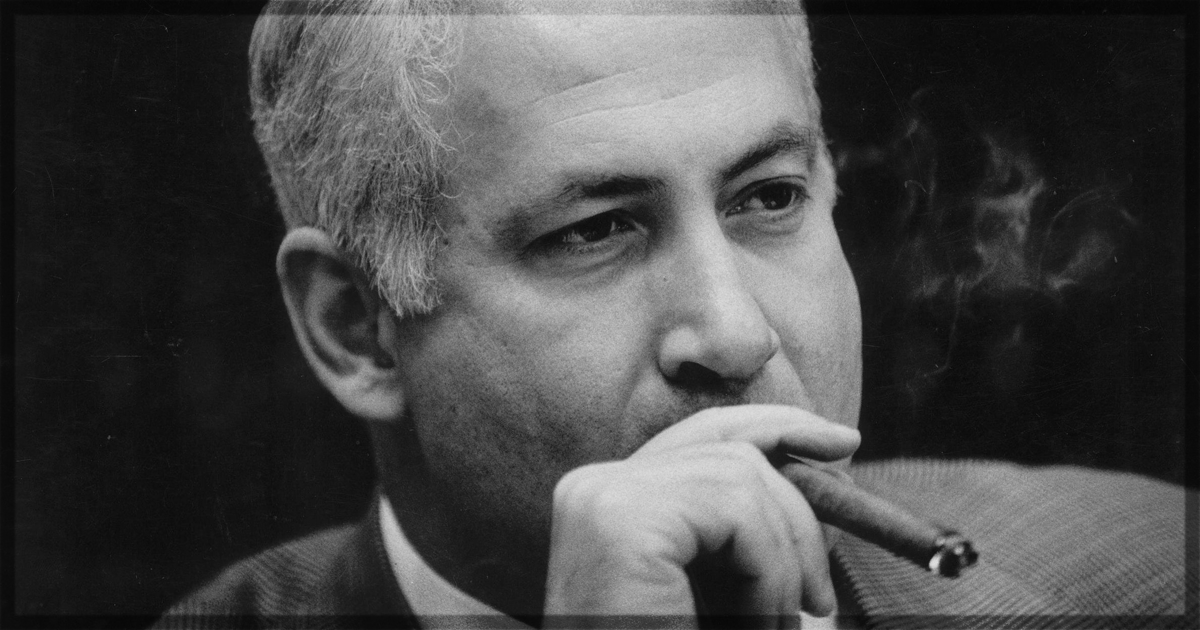In recent years, Israeli Prime Minister Benjamin Netanyahu has become a central part of the geopolitical discussions due to his scandals as the leader of his country. In 2016, Netanyahu was investigated for corruption and bribery. Over two years, Justice interrogated everyone near him. The result was thousands of hours of footage from the interrogations, which had not been published before, except for audio extracts from the interviews. However, in 2023, the video recordings were leaked and sent to Academy Award-winning filmmaker Alex Gibney. Gibney, probably best known for Enron: The Smartest Guys in the Room, invited director Alexis Bloom to direct the film, and the resulting documentary, The Bibi Files, is the result. It had its world premiere at last year’s Toronto International Film Festival at the TIFF Docs section as a work-in-progress project.
Bloom approaches the thousands of pieces of footage through an organized timeline. She introduces the investigation, and the footage unfolds the details of the conversations between Bibi and the Justice officials. In this sense, it is a straightforward documentary with its intentions. Politically, Bloom organizes, through precise editing, the thesis on Netanyahu’s bribery scandal with Israeli billionaires and how their actions focused solely on exploring the political structure to benefit them. The main pipeline of the inquiry relies on the study of the connection between Sara and Bibi and the weapons seller and Hollywood producer Arnon Milchan. Structurally, the film develops its analysis of the confession from those near the lead characters of the case, such as Milchan’s former assistant. In a fascinating direction, Milchan is the element that exposes the luxury of Sara and Bibi. She would ask for Tiffany Co. jewelry worth thousands of dollars. Bibi would get Cuban cigarettes and champagne.
The detailed exploration of the billionaire’s intentions regarding Israel’s leader reveals an obvious outcome of the relationship between the two parties. Milchan is interested in paying less taxes, which Bibi would lobby for through a new law approved by his ministry after his tremendous pressure. There is a clear path that exposes Bibi’s interest in luxury and societal power, something that he would acquire with his close association with Milchan. Besides his past with the weaponry dealership, Milchan is a symbol of the soft power that Hollywood exports to the world through its film productions. The New Regency Productions, led by him, produced works like Gone Girl, Ad Astra, Widows, and The Revenant. Milchan’s productions and clear impact on popular culture would hide the dangerous relationship with Netanyahu, and his pursuit of unfair fiscal advantages that his fame and power allowed him to lobby for. In a significant portion of her film, Bloom and her editors, Andy Grieve and Halil Efrat, filter thousands of hours of footage that draws a dangerous picture of the bribery scandal.
Additionally, there is a clever construction of the extremism of Bibi as a politician going back to his early days until his embrace of the far-right in Israel. The film paves the way for the discussion surrounding the interconnection between the military force in Gaza in the days following October 7th as a power play to maintain him in power. In the current era of filmmakers not compromising to a political side, afraid of a possible boycott, Bloom and Gibney chase the imagery constructed by the media of Bibi as a defender of his home. However, their politically elaborated investigation gets trapped in the storytelling structure of the documentary form. In this case, the archive is a precious collection of leaked footage. But it reaffirms statements in different interviews that corroborate a final third that drags in its format.
As mentioned above, the existence of The Bibi Files as a product of film artistry, not as art but as a commercial commodity, became rarer during its production. Before 2023, political-themed documentaries were a viable choice for the indie industry, but they became an unviable possibility in the current economy. Frontal approaches that confront personas as Bibi’s drift buyers and investors away, in a sense that it is almost a condescending attitude of film executives to these pro-oligarch figures. However, The Bibi Files proposes a conversation that stands on its own terms and allows the viewer to engage in the political debate, at least in informational terms. Again, the investigation is fascinating as a film exercise and on a political debate level.
The Bibi Files is available to watch on digital formats.
Learn more about the film at it’s official website.


